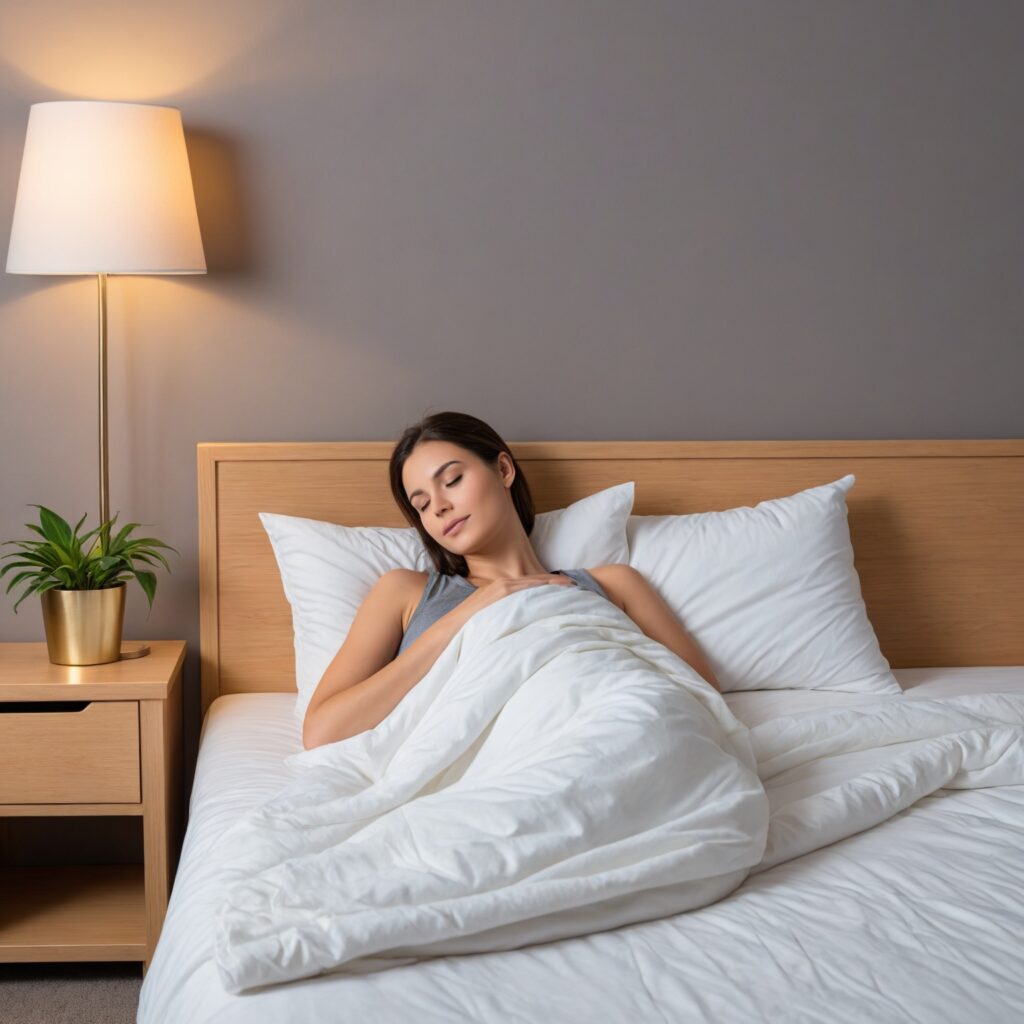10 Ways to Stop a Panic Attack
Panic attacks are frightening and can strike you fast. Here are 10 methods you can use to prevent or control panic attacks. Some might help at the moment, while others may assist in the long term.
1. You should seek for counseling
Cognitive-behavioral therapy (CBT) and other kinds of counseling are often able to assist people suffering from panic attacks or anxiety disorders. CBT is designed to assist you to transform the way you perceive difficult or scary situations and help you discover innovative ways to deal with the challenges that come up.
There are CBT programs for groups or individuals in person or online and the duration of treatment may also differ. When you undergo CBT based on the exposure your counselor will expose you to something that may create panic and guide you on through the anxiety.
In addition to changing your behavior, there is evidence to suggest that CBT could alter the structures of your brain the cause of panic-related symptoms.
In the year 2018, researchers from ( the Trusted Source) discovered evidence that showed people who took part in four weekly sessions of CBT based on exposure experienced modifications in neural pathways implicated in the occurrence of panic symptoms. But this was an early study and further research is required.
In the year 2018 37 individuals from Korea took part in a mindfulness program each week for 4 weeks to determine how a brief intervention could alleviate anxiety symptoms. One of the aspects of the program was to pay attention to the heart rate of their participants since certain people suffer from anxiety-related heart symptoms at the time of a panic attack.
The results suggested that participants had a better ability to manage their symptoms by using their own thoughts after the treatment. It was a tiny study as there wasn’t control. It is necessary to conduct more research to determine the effectiveness of short-term therapy. be.
2. Use medication
Benzodiazepines like alprazolam (Xanax), can assist to treat symptoms of panic whenever they are present.
They won’t, however, help in treating an underlying anxiety disorder and could quickly cause dependence. This is why doctors recommend them only to use for a short period of time during an emergency.
Since benzodiazepines are prescription drugs, you’ll probably require a diagnosis of panic disorder diagnosis in order to have the medication available.
In some instances, the doctor might prescribe antidepressants for long-term use. Examples include:
- selective serotonin-reuptake inhibitors (SSRIs), such as escitalopram (Lexapro) or fluoxetine (Prozac)
- serotonin-norepinephrine reuptake inhibitors (SNRIs), such as duloxetine (Cymbalta)
- anti-anxiety drugs, for instance, azapirone (Buspirone)
Certain anti-seizure medicines like pregabalin and Clonazepam can aid in treating anxiety.
What drugs are available to help treat anxiety disorders?
3. Utilize deep breathing
Although hyperventilating can be a sign of panic attacks, which can make people more fearful, deep breathing can help reduce the symptoms of panic in an attack.
In one study by Trusted Source published in 2017, forty people were part of a group therapy that included diaphragmatic or deeper breathing, or a control group. After 20 hours of intensive training participants who engaged in deep breathing experienced an improvement in their attention levels as well as their emotional wellbeing.
Tests of blood also showed decreased levels of cortisol in the group, which indicates fewer stress levels. Participants did not suffer from panic disorder, but these strategies can help those who suffer from panic attacks.
An additional group of researchers at Trusted Source discovered that breathing slow may produce similar effects. They concluded that it could enhance feelings of relaxation calmness, and alertness. It could also lessen symptoms of anger, depression, anxiety, and confusion.
If you can manage your breathing, you’ll be much less likely to be experiencing hyperventilation that could create other symptoms as well as the panic attack itself being more severe.
Concentrate on taking deep breaths out and in through your mouth. Feel the air filling your stomach and chest, gradually leave them. Take a deep breath in and out for a number of four, then hold for one second, then exhale for a total of four:
4. Be aware that you’re having a panic attack
When you realize that you’re having a panic attack rather than a heart attack It’s a good idea to remind yourself that it’s temporary, it’s going to be over, and you’ll be okay.
Eliminate the worry that you could be dying or that your death is in the near future, both signs of panic attacks. This allows you to concentrate on other methods to lessen your symptoms.
It’s not always possible to stay clear of triggers that can cause panic attacks, but when you are aware of the trigger and what triggers it, it can aid in understanding that it’s a panic attack and not an issue with another.
5. Close your eyes
A few panic attacks are triggered by triggers that can overwhelm the person. If you’re in an accelerated environment, with lots of stimulation, it can cause panic attacks.
To lessen the stimulation, close your eyes when you are experiencing a panic attack. This will keep out any other stimulus and allow you to concentrate on your breathing.
6. Practice mindfulness
Mindfulness can help you stay grounded in the present reality happening around you. Since panic attacks can create an impression of detachedness or disconnection from reality it can help you deal with your anxiety when it’s coming up or even happening.
Mindfulness is the process of:
- Pay attention to the moment
- Recognizing the emotional state you’re in
- Meditation can lessen stress and let go
Concentrate on the physical sensations you’re familiar with, such as placing your feet on the soil or feeling the feel of your jeans in your hands. These particular sensations anchor you in the present and provide you with something to concentrate on that is objective.
Experts suggest that mindfulness methods like meditation may help with anxiety-related symptoms, but it’s unclear if they could help treat an anxiety disorder that is underlying.
American Family Physician advised mindfulness as a way to manage anxiety and panic in 2015. They said it could be as effective in lessening stress as CBT or other therapies for behavioral issues.
A small amount of research from Trusted Source suggests that mindfulness-based cognitive therapy may aid people suffering from anxiety disorders who receive medical treatment but aren’t finding medication to be effective.
7. Find the focus object
A few people find it useful to choose something to be able to focus their entire focus in the time of panic attacks. Choose one thing that is in vision and take note of all the details that could be relevant to it.
For instance, you might observe that the clock’s hand will jerk when it is ticking, and also that it’s slightly unbalanced. Imagine the patterns, colors shapes, and sizes in the objects to yourself. Focus your attention solely on the object and the panic-related symptoms could be relieved.
8. Use muscle relaxation techniques to stop panic attack
The tension in your muscles is a sign of anxiety. Using muscle relaxation techniques can ease tension and help promote relaxation in the event of an attack. Progressive relaxation of muscles seeks to relieve tension in a single group or muscle group at the given time to ease the entire body.
Like deep breathing, these relaxation techniques can stop your panic attack by calming your body’s response to stress as much as you can.
If you’re a participant in massage therapy Your therapist could guide you through the steps below. steps. (Trusted Source🙂
- The first step is to be taught to tighten muscles prior to release the tension.
- You will then be taught how to relax your muscles without first tensing them.
- It is also possible to learn to relax certain muscle groups such as in the shoulders for practical application in everyday situations.
- In the end, you can be taught how to perform fast relaxation, by identifying any areas of tension and ease it whenever you need to.
To begin in the process of relaxing the muscles in your home you can consciously ease one muscle at a time. Start with something as simple as the fingers of your hands, then move into your body.
Techniques for the relaxation of muscles will be most effective if you’ve practiced these techniques prior to them.
9. Imagine your ideal place to be.
Guidance in imagery can aid in reducing anxiety and stress. ResearchTrusted Source suggests that both time spent in nature and imagining nature can aid in treating anxiety and relieve stress.
Where is the most peaceful place anywhere in the world you could imagine? A sun-kissed beach with rolling waves? A cozy cabin in the mountains?
Imagine yourself in that place and focus on the specifics as much as is possible. Imagine digging your toes in the warm sand or taking in the sharp smell from a pine tree.
This area should be tranquil serene, peaceful, and tranquil and not crowded with the hustle and bustle of New York or Hong Kong regardless of how much you adore the cities of the real world.
10. Engage in light exercises
Studies have shown that regular exercise not just keeps your body in good shape but also improves mental health too.
Experts have concluded that working out at 60-90 percent of your heart rate maximum for 20 minutes 3 times per week can ease anxiety.
If you’re not used to exercising discuss it with your physician prior to starting. There is evidence from the Trusted Source that beginning aerobic exercise in a new way can create anxiety for people suffering from anxiety disorders. Gradually increasing your intensity can aid in adjusting your body and prevent breathing issues. Aerobic exercise can be described as running on the treadmill.
If you’re feeling stressed or are exhaling or having trouble breathing you should relax or select an alternative that is more gentle like walking or swimming or even yoga.
Do you have the ability to prevent the possibility of panic attacks?
It’s not always possible to avoid panic attacks however, these guidelines can help:
- Perform breathing exercises daily
- get regular exercise
- Follow a healthy diet low in sugar added and eat often to avoid spikes in glucose
- Beware of coffee, smoking or alcohol since they could cause anxiety to increase
- Seek counseling or other professional support
- consult your doctor about local support organizations.
Avoiding triggers that trigger anxiety can assist in preventing panic attacks However, this might not be always feasible or even appropriate. Certain experts advise people to “ride through” the anxiety and keep taking action if they can.
If a circumstance could cause extreme stress, you should wait until you’ve had the opportunity to work with a professional who can help you develop strategies and skills to aid you in managing.
When is the best time to visit a doctor
If you are concerned regarding panic attacks, you should consider consulting with a physician for advice, particularly when:
- You’ve experienced one or more panic attacks, and you keep worrying over panic attacks throughout a month or more.
- You notice that you are changing your behavior following an attack.
- The stress or fears or anxiety may be hindering your work, study or your daily routine.
Summary
A lot of people suffer from panic attacks in which they feel anxious and uncontrollable in an event, perhaps without understanding the reason.
It is possible to feel breathless or as if having a heart attack and it can be alarming.
Anxiety attacks can strike at any time and can have a major impact on your life routine However, there are solutions to control the symptoms. Treatment is also available for anxiety and panic disorders, which could be the result of an underlying illness.
If you’re concerned about panic attacks, talk with your physician. They will help you figure out a strategy that will alleviate symptoms and lessen the effect. This could involve medication like antidepressants along with counseling.









